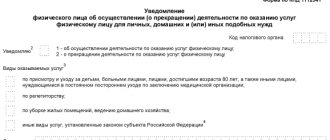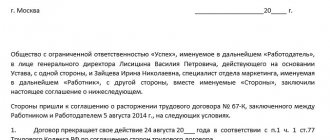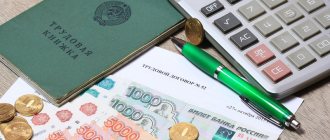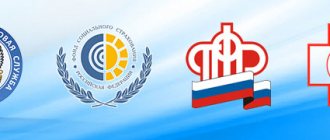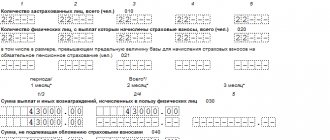Before determining whether per diem is subject to insurance premiums, here are some key points to remember about business travel.
The employer is obliged to pay the posted employee:
- travel to and from your destination;
- accommodation (housing rental);
- expenses related to the performance of labor duties;
- costs that compensate for the inconveniences associated with living outside the place of residence, or CP.
Travel and accommodation costs are determined based on actual expenses incurred. Moreover, such expenses will have to be documented. That is, provide checks, tickets or receipts. With SR the situation is different. It is quite problematic to document such expenses. Therefore, it is necessary to set a limit for SR - a specific amount of money that will be given to the employee for one day of stay on a business trip.
Determining limits
So, the current legislation does not establish a maximum size of SR. However, officials have determined a certain limit, above which daily allowances in excess of the norm are subject to insurance premiums (2018).
Article 217 of the Tax Code establishes that excess daily allowances are subject to insurance contributions (2018). Also, personal income tax will have to be withheld from amounts exceeding the limit. The limits are set as follows:
- for trips within Russia - 700 rubles per day;
- for foreign business trips - 2500 rubles per day.
In other words, if an institution has established large values for this type of expense, then the amount exceeding the limit is subject to taxation (personal income tax and personal income tax). Please note that this limit only applies to taxation. The company has the right to establish a CP greater than specified in Art. 217 Tax Code of the Russian Federation.
Using a specific example, we will determine whether daily allowances are subject to personal income tax and insurance premiums.
Primerov Ivan Andreevich was sent to Moscow for 10 calendar days. 43,000 rubles were allocated for travel expenses, including:
- 5000 rub. - to pay for travel;
- 18,000 rub. — for rental housing (payment for a hotel room);
- 20,000 rub. - SR (2000 rubles per day, therefore, daily allowances over 700 rubles, insurance premiums will have to be charged).
Amounts allocated for travel and accommodation are not subject to taxes. But above-limit daily allowances are subject to insurance premiums. Let's do the calculation:
- We determine the amount of excess (2000 rubles – 700 rubles) × 10 days. = 13,000 rub.
- We calculate personal income tax: 13,000 × 13% = 1,690 rubles.
- We determine the amount of SV: 13,000 × 30.2% (OPS - 22%, compulsory medical insurance - 5.1%, VNIM - 2.9%, NS and PZ - 0.2%) = 3926 rubles.
Consequently, Examples will receive 41,310 (5000 + 18,000 + (20,000 – 1690)) rubles. And the company’s expenses will amount to 46,926 (43,000 + 3926) rubles.
Please note that one-day business trips and daily allowances (insurance contributions) are no exception. You will still have to withhold personal income tax on the excess and pay the contribution tax to the budget.
Accounting for taxation of travel insurance premiums: entries
The amounts of insurance payments accrued for travel expenses can be included in the list of enterprise expenses for ordinary activities. Expenses must be recognized on the date they are actually accrued. These requirements are specified in clauses 5, 8, 16, 18 PBU 10/99.
Insurance premiums are calculated as follows:
DEBIT 20 (25, 26, 44...) CREDIT 69 subaccount “settlements with “specified_fund”
To reflect the payment of funds, record the subaccount number of the selected fund on DEBIT; and account 51 on CREDIT (where the company’s current accounts are reflected). For example, the reflection of the deducted contribution to the Pension Fund will look like this: DEBIT 69.2 CREDIT 51.
Accounting entries for daily allowance:
DEBIT 208.12 CREDIT 201.34 (issue of cash payment from the cash desk for daily expenses)
Expense recognition is the date of actual payment of daily allowance.
How are daily personal income tax and insurance premiums assessed?
The taxation procedure for SRs exceeding those established in Art. 217 of the Tax Code of the Russian Federation, the general one applies. For personal income tax, the rate is set at 13%. Let us remind you that not the entire amount is taxed, but only the difference exceeding the permissible limit.
For example, a company operates in the field of IT technologies and has the right to reduced insurance rates:
According to the conditions of the example given above, the company will pay to the budget not 3,926 rubles (13,000 × 30.2%), but only 1,846 rubles (13,000 × 14.2% (8% + 4% + 2% + 0.2% Therefore, insurance premiums for excess daily allowances are calculated and paid at preferential rates if the company has a legal right to them.
Position of the Ministry of Finance and the Social Insurance Fund
In general, representatives of the Ministry of Finance accepted the position of the Presidium of the Supreme Arbitration Court, and even moreover, developed it further. In Letter dated March 1, 2013 N 03-04-07/6189, they referred to the fact that, in accordance with paragraph 3 of Art. 217 of the Tax Code, all payments related to reimbursement of travel expenses are exempt from personal income tax within the limits of actually made and documented target expenses.
The only exception is daily allowance. Based on this, officials indicated that in the absence of supporting documents, funds paid to employees on one-day business trips in lieu of daily allowances may, in accordance with Resolution of the Presidium of the Supreme Arbitration Court of the Russian Federation dated September 11, 2012 N 4357/12, be exempt from taxation up to 700 rubles.
However, as for the authorities monitoring the payment of insurance premiums, it seems that the right not to impose “one-day” daily contributions to extra-budgetary funds will still have to be defended in court. At least, representatives of the Federal Social Insurance Fund of the Russian Federation in Letter dated July 2, 2013 N 15-03-14/05-6357 indicated that the insurer’s expenses when sending an employee on a one-day business trip are not per diem, regardless of the basis for their payment, and therefore such amounts are subject to inclusion in the base for calculating insurance premiums for industrial accidents and occupational diseases.
MORE: Insured person category codes in 2020: table with explanation || ASB code in calculation of insurance premiums
Meanwhile, the object of taxation on “unfortunate” contributions, as well as other contributions to extra-budgetary funds, is primarily payments to individuals within the framework of labor relations. At the same time, the list of non-taxable amounts given in Art. 20.2 of the Law of July 24, 1998 N 125-FZ, is almost identical to that established by Art.
9 of Law No. 212-FZ. At least, legislative compensation related to the performance of work duties by an individual, including when sent on a business trip, are exempt from the assessment of “accident” contributions in the same manner as contributions for other types of compulsory insurance (clause 2, clause 1 , clause 2 of article 20.2 of Law N 125-FZ).
A. Peremet
Daily allowances based on insurance premiums 2020
Many accountants wonder whether per diem is correctly reflected in the calculation of insurance premiums? Tax officials gave an official explanation that not only SR, but also all amounts of travel expenses should be included in the calculation of SV.
So, when filling out the report, indicate the entire amount that was accrued to the posted employee. Don't forget to include travel, accommodation and other expenses. Enter travel expenses in line 030 of subsection number 1.1 of Appendix No. 1 to Section No. 1 of the SV report.
The amount that is not subject to taxation is indicated in line 040 of subsection 1.1, Appendix No. 1 of the first section.
Therefore, line 050 will indicate the taxable difference.
Lines 030, 040 and 050 of subsection 1.2 of Appendix No. 1 of the first section should be completed in the same way. And also lines 020 and 030 of Appendix No. 2 to the first section. Such recommendations are presented in the Letter of the Federal Tax Service dated 08.08.2017 No. GD-4-11/15569.
The information will also have to be detailed in the third section of the DAM. Namely, in part 3.2.1 of the third section, reflect the daily allowance in the report on insurance premiums as follows:
Travel expenses in the DAM
Topic: Business trips, daily allowances How to prepare and submit calculations for insurance premiums to the Federal Tax Service. Is it necessary to reflect the payment of hotel and tickets to a posted employee in the calculation of insurance premiums? How to take into account the costs of renting housing during a business trip for tax purposes.
Question:
Is it necessary to include daily allowance (400 rubles within the norm), apartment allowance (12 rubles), and hotel payments in the calculation of insurance premiums? Cash will be issued for these expenses on the day of departure on a business trip.
Should this calculation reflect payments to employees under lease agreements for personal transport (passenger cars)?
Answer:
Daily allowance, room allowance and hotel accommodation paid for by the employee during a business trip are recognized as payments within the framework of labor relations (Article 420 of the Tax Code of the Russian Federation).
Therefore, include these payments in full in the total amount of payments on lines 030 of subsections 1.1 and 1.2 of Appendix 1, as well as line 020 of Appendix 2 to Section 1. And the non-taxable part of it - in the indicators of lines 040 of subsections 1.1 and 1.
2 of Appendix 1, as well as line 030 of Appendix 2 to Section 1. Similarly, reflect these payments in other subsections of Appendix 1 to Section 1 (if completed).
Take these amounts into account when filling out Section 3 for the relevant employees.
Please note that compensation for travel and accommodation is not subject to contributions in the amount of expenses documented by the employee, and daily allowances are not subject to contributions in the amount established in the local act of the employer (clause 2 of Article 422 of the Tax Code of the Russian Federation). Therefore, if housing costs (12 rub.
) are paid only on the basis of a local act of the employer and the employee does not provide supporting documents, then they will be subject to contributions for compulsory health, pension and social insurance in the event of temporary disability and in connection with maternity in full.
Rationale
How to prepare and submit a calculation of insurance premiums to the Federal Tax Service
The table below will help you figure out how to fill out the calculation in difficult situations:
| Pay | How to reflect in calculations |
| Daily allowance | Reflect the entire amount of daily allowance on line 030 of subsection 1.1 of Appendix 1 to Section 1. The amount of daily allowance within the standard is not subject to insurance premiums. Therefore, reflect it in line 040 of subsection 1.1 of appendix 1 to section 1. Similarly, reflect in lines 030 and 040 of subsection 1.2 and in lines 020 and 030 of appendix 2. In subsection 3.2.1 of section 3, reflect the amount of daily allowance as follows. On line 210, indicate the entire amount of daily allowance (within and above the norm). And in line 220, include only the taxable amount, that is, in excess of the norms |
Is it necessary to reflect the payment of hotel and tickets to a posted employee in the calculation of insurance premiums?
Yes, it is necessary if you are compensating expenses for an employee.
Payment for travel to the place of business trip and accommodation of a posted employee are payments in favor of the employee within the framework of the employment relationship. Such payments are not subject to insurance premiums, provided that the expenses are documented. This is provided for in paragraph 2 of Article 422 of the Tax Code of the Russian Federation.
Thus, include documented amounts of payment for travel and hotel accommodation in the total amount of payments and as part of non-taxable payments. That is, according to lines 030 and 040 of subsection 1.1 of Appendix 1 to Section 1 and subsection 1.2 of Appendix 1 to Section 1. In Appendix 2 - according to lines 020 and 030.
When an organization pays expenses to the supplier by bank transfer, do not include the payment for accommodation in the calculation. These are targeted business trip expenses; the employee does not account for them. The hotel issues the report directly to the employer. In this case, the employee is not paid any money - there is no subject to insurance premiums. This follows from paragraph 1 of Article 420 of the Tax Code of the Russian Federation.
How to take into account the costs of renting housing during a business trip for tax purposes. The organization applies a special tax regime
Personal income tax and insurance premiums
Regardless of what tax regime the organization applies, do not include compensation for rental housing costs in the amount of actual and documented costs:
Apply this procedure even if the organization has established a compensation limit, but the actual documented amount of expenses exceeded this value. Receive a written explanation from the employee indicating the reasons for overspending on housing costs (letter of the Ministry of Finance of Russia dated July 4, 2012 No. 03-04-06/6-204).
Undocumented expenses
Suppose an employee does not have documents about expenses for renting housing during a business trip. In this case, insurance premiums for compulsory pension (medical, social) insurance must be charged to compensate for such costs. These are the requirements of Article 420 and paragraph 2 of Article 422 of the Tax Code of the Russian Federation.
But the situation is different with contributions for insurance against accidents and occupational diseases.
Compensation for undocumented expenses for renting housing during business trips is exempt from insurance premiums within the limits established in accordance with Russian legislation (Clause 2, Article 20.2 of Law No. 125-FZ of July 24, 1998).
The obligation to reimburse an employee for the costs of renting accommodation during a business trip is established by Article 168 of the Labor Code of the Russian Federation.
According to the provisions of this article, the procedure and amount of reimbursement of expenses are determined by a collective agreement or local regulations (for example, an order on business trips). Consequently, if the employee has not documented the costs of renting housing, then such costs are exempt from insurance premiums within the limits established by these documents.
Correct seven errors in the calculation of contributions
Confused about per diem
Some farms reflected only above-limit daily allowances in their calculations, while others did not reflect such payments at all.
When filling out subsection 3.2.1 of section 3, use the following procedure: on line 210, indicate the entire amount of daily allowance, including excess allowance:
– 700 rub. when traveling around Russia;
– 2500 rub. when traveling abroad.
In line 220 you need to include only the taxable amount, that is, the difference paid in excess of the norm.
The full daily allowance must be indicated in line 030 of subsection 1.1 of Appendix 1 to Section 1. The daily allowance within the limits of the standard is not subject to insurance premiums. This amount must be reflected in line 040 of subsection 1.1 of Appendix 1 to Section 1. In the same order, you need to fill in the data on lines 030 and 040 of subsection 1.2 and on lines 020 and 030 of Appendix 2.
How to reflect daily allowances in calculations
There were no business trips in the first quarter. In the second quarter of 2020, the farm sent an employee on business trips for five days every month: from April 10 to 14, from May 22 to 26 and from June 5 to 9. In accordance with the regulations on business trips, daily allowances within Russia are paid in the amount of 1000 rubles. In total, for the second quarter the employee was accrued 15,000 rubles. daily allowance.
Amounts not subject to insurance premiums
When payers pay expenses for business trips of employees both within the territory of the Russian Federation and outside the territory of the Russian Federation, the daily allowance provided for in paragraph 3 of Article 217 of this Code, as well as actually incurred and documented targeted expenses for travel to the destination, are not subject to insurance contributions. and back, fees for airport services, commission fees, costs of travel to the airport or train station at places of departure, destination or transfers, baggage transportation, costs of renting accommodation, costs of communication services, fees for issuing (receiving) and registration of a service foreign passport, fees for issuing (receiving) visas, as well as costs for exchanging cash or a bank check for cash foreign currency. A similar procedure for levying insurance premiums applies to payments made to individuals who are under the authority (administrative) subordination of the organization, as well as members of the board of directors or any similar body of the company arriving to participate in a meeting of the board of directors, board or other similar body of this company.
Source: https://www.glavbukh.ru/hl/215147-komandirovochnye-rashody-v-rsv
Let's sum it up
So, we have identified the following important points:
- The CP limit is set by the organization independently.
- The norms must be enshrined in the order.
- If the CP per day exceeds 700 rubles. for trips around Russia and 2500 rubles. per day for business trips abroad, then amounts exceeding the daily allowance for business trips are subject to insurance contributions.
- All travel expenses should be included in reporting, namely in the DAM.
Please note that if a company does not include travel expenses in the DAM report, then tax authorities do not have the right to issue a fine. However, this only applies to non-taxable amounts. It should also be noted that if the company has not included non-taxable business trips in the DAM, then it is advisable to provide an adjusting report. But if the adjustment is not provided, then the tax authorities cannot fine the company, since the tax base is not underestimated.
Online magazine for accountants
Attention
Are excess daily allowances subject to “accident” contributions? However, in addition to the contributions transferred to the jurisdiction of the tax service, there is another type of contribution - for injury insurance (so-called accident contributions). The rules for their calculation are regulated by the law “On Compulsory Social Insurance...” dated July 24, 1998 No. 125-FZ, which has not been affected by the changes that have occurred since 2020 with all other insurance contributions. Text of paragraph 2 of Art. 20.2 of Law No. 125-FZ allowed daily allowances not to be assessed on “unfortunate” contributions until 2017, and in 2017-2018, payers of these contributions still have the right not to charge them on daily allowances issued for the time spent on business trips both in the territory of the Russian Federation , and abroad.
And this exemption is not dependent on the amount of daily allowance. Thus, there is no need to charge injury insurance premiums for excess daily allowances in 2020.
What expenses are reimbursed to a posted worker?
There are often cases when employers are forced to send their employees outside the location of the organization to resolve official issues. Trips for a certain period of time, on a specific official assignment from a manager, to another locality or abroad are called business trips.
Before the start of a business trip, the employer must:
- establish the amount and procedure for paying travel expenses to an employee;
- prepare the documents necessary to send an employee on a business trip.
In accordance with the Labor Code of the Russian Federation, the employee is reimbursed for the following business trip expenses:
- for travel;
- rental of residential premises;
- additional living expenses (per diem);
- other expenses for the performance of official tasks (with the permission of the manager).
As a rule, an organization develops internal documents or a collective agreement that defines the procedure and amount of reimbursement for these expenses.
The procedure for reimbursement of business trip expenses to employees of various federal government bodies, institutions and funds, as well as municipal institutions is determined by regulatory legal acts of the government of the Russian Federation, local governments, and state authorities of the constituent entities of the Russian Federation (Part 2 of Article 168 of the Labor Code of the Russian Federation).
The concept of "per diem"
In situations where a company employee goes on a business trip in Russia or abroad, the employer undertakes to pay him a certain monetary remuneration, which is calculated per day - these are the so-called daily allowances. At the same time, there are only 3 main situations in which the employer is obliged to pay per diem.
To study the issue more accurately, let’s look at how the law interprets business trips. A business trip is a business trip, the terms and conditions of which are determined by the employer. In this case, the place where the work will be carried out must be remote from the established one.
Per diems are not part of the housing payment when working remotely and are taken into account as additional expenses for the employee’s daily needs. As a rule, the further away the remote work location is, the greater the amount the employer pays.
Which travel expenses are subject to personal income tax?
Daily allowances are partially subject to personal income tax - they are exempt from tax only within the limits established by the Tax Code of the Russian Federation (clause 3 of Article 217 of the Tax Code of the Russian Federation).
If the manager decides to reimburse the posted employee for expenses in excess of the norm, then this difference is subject to personal income tax.
Clause 3 Art. 217 of the Tax Code of the Russian Federation establishes the following daily allowance rates:
- when a seconded employee is in the Russian Federation - 700 rubles. in a day;
- if a posted employee is located outside the territory of the Russian Federation—RUB 2,500. in a day.
Consequently, personal income tax on business trips will be calculated from the amount of 500 rubles. for each day you are on a business trip, i.e. from the difference between the daily allowance paid and the non-taxable rate established by law (1200 - 700 rubles).
What are the daily expenses?
Daily expenses are provided in the following cases:
- When sending an employee on a business trip within Russia or abroad;
- When an employee constantly works on the road, when constantly working in the fields, when equipping for an expedition or geological exploration;
- When an employee is attending advanced training courses.
| ★ Best-selling book “Accounting from scratch” for dummies (understand how to do accounting in 72 hours) > 8,000 books purchased |
What travel expenses are not subject to personal income tax?
The Tax Code of the Russian Federation stipulates what is not included in the employee’s income subject to income tax. This includes, among other things, compensation by the employer for the following expenses (clause 3 of Article 217 of the Tax Code of the Russian Federation):
- the cost of travel to the place of performance of the official assignment (regardless of the place of departure for the business trip) and back, including the cost of services in luxury cars;
- commission for airport services;
- the cost of travel to the place of departure (train station, airport), destination or transfers;
- baggage transportation.
Compensation for these expenses is not subject to personal income tax if the expenses are documented. If such documents are missing, the compensation paid is exempt from personal income tax only within the established norms (clause 3 of Article 217 of the Tax Code of the Russian Federation).
In addition, the employee must be reimbursed for the costs of renting housing on a business trip (paragraph 3, part 1, article 168 of the Tax Code of the Russian Federation). If the employee submits supporting documents, then such expenses will be compensated in full and are not subject to personal income tax. In the absence of documents, income tax will not be imposed on the amount within the limits specified in paragraph. 10 clause 3 art. 217 Tax Code of the Russian Federation.
Additional services on the train
The cost of travel to and from the business trip may include the cost of service. For example, when purchasing a ticket for a luxury carriage on long-distance trains (clause 33 of the Rules for the provision of services, approved by Decree of the Government of the Russian Federation dated March 2, 2005 No. 111).
The composition of the range of services is determined by the carrier. In each train, taking into account the schedule and the duration of the passengers' stay on the route, it may vary. Paid services include: provision of guaranteed food, printed materials, sets of sanitary and hygienic items (Order of the Ministry of Transport dated July 9, 2007 No. 89).
Compensation for the cost of paid services included in the ticket price is not included in the contribution base, since the cost of such services forms the single cost of travel on the train (letter of the Ministry of Finance dated 08/07/2017 No. 03-04-06/50386).
Results
Compensation for travel expenses is not subject to personal income tax if these expenses are documented. As for the taxation of daily allowances, they are not subject to personal income tax only within the limits of the norms.
Starting from 2020, insurance premiums are not subject to daily allowances in the amount established by the Tax Code. Daily allowances in excess of this limit, even if their amount is specified in the company’s local regulations, are subject to both contributions and personal income tax.
When sent on a business trip, the employee is guaranteed reimbursement of expenses associated with the business trip, including additional expenses for living outside his permanent place of residence (per diems) (Articles 167, 168 of the Labor Code of the Russian Federation).
If sent on a business trip, the employer is obliged to reimburse the employee for travel and rental expenses, additional expenses associated with living outside the place of permanent residence (per diems), and other expenses incurred by the employee with the permission and knowledge of the employer.
The procedure and amount of reimbursement of expenses related to business trips are established in the collective agreement or local regulations of the company.
The legislative framework
| Code | Information about excess daily allowances |
| Labor Code | 1. According to Art. 168, the employer is obliged to reimburse the employee’s expenses related to living outside his place of permanent residence. 2. The employer can independently determine the amount of daily allowance, fixing it in a local regulation or in a collective agreement. 3. A business trip is work carried out by an employee for a specified period outside the place of work and involving residence in a place remote from his permanent home. If the work officially involves traveling, then such a trip is not considered a business trip. At the same time, while on a business trip, an employee cannot lose the established salary or lose his job: his working conditions must remain the same throughout the entire period of the business trip. |
| tax code | 1. Daily allowances that exceed the norm established by the Government do not make the income tax base smaller (Article 264). 2. Article No. 217 limits the amount of daily allowance paid to an employee, which is not taxed. 3. Compensation payments established by local, regional, district, and federal legislation, the amount of which does not exceed the norms established by law, are completely exempt from taxation (Article 217). 4. Article No. 226 specifies the procedure for withholding personal income tax from daily allowances, which it is recommended that the accountant adhere to. |
In addition, it is important to refer to two decrees of the Government of the Russian Federation that address the issue of daily allowances. The first of them, No. 93, contains information about the rate of daily allowance paid and some of their features. Second, No. 729 includes the amount of reimbursement of travel expenses within budgetary organizations.
Insurance premiums based on daily allowance
Since 2020, the Federal Tax Service of Russia has been administering the procedure for calculating and paying insurance premiums to the Pension Fund of the Russian Federation, the Federal Compulsory Medical Insurance Fund and the Social Insurance Fund of Russia (with the exception of contributions for injuries). In this regard, the Tax Code has been supplemented with a new chapter 34 “Insurance premiums”. It sets out the rules for calculating and paying contributions.
Thus, it has been established that daily allowances in the amount of:
no more than 700 rubles for each day of a business trip in the Russian Federation;
no more than 2,500 rubles for each day of being on a business trip abroad (clause 3 of article 217, clause 2 of article 422 of the Tax Code of the Russian Federation).
Until 2020, daily allowances were not subject to insurance premiums within the limits established by the company itself in its local regulations.
Thus, from 2020, daily allowances in excess of these standards should be subject to contributions, regardless of whether the excess amounts are prescribed in local regulations or not.
As a general rule, the date of payments is determined as the day they are accrued (clause 1 of Article 424 of the Tax Code of the Russian Federation). The date the employee receives income in the form of excess daily allowance is the day the advance report is approved.
This means that daily allowances that exceed the norm are included in the base for calculating insurance premiums in the calendar month in which the employee’s advance report is approved.
Let us remind you that upon returning from a business trip, the employee is obliged to submit an advance report on the amounts spent in connection with the business trip, including daily allowances, within three working days, and make a final payment on the cash advance issued to him before leaving for the business trip for travel expenses (clause 26 Regulations on business trips, approved by the Government of the Russian Federation of October 13, 2008 No. 749).
Please note that daily allowances are not subject to insurance premiums for injuries (Clause 2, Article 20.2 of Federal Law No. 125-FZ of July 24, 1998). In this case, the amount of daily allowance does not matter.
What to look for in 2020
In 2020, it makes sense for accountants to be more careful regarding excess daily allowances: insurance premiums will have to be charged on them. And the main thing here is not to get confused. After all, earlier, in 2016 and earlier, any amount of daily allowance was free from contributions. The main guarantee was that their maximum values were specified:
- in a collective agreement;
- regulations on business trips or other internal acts.
However, in 2020, insurance premiums from daily allowances in excess of the norm will have to be paid to the treasury. At the same time, the daily allowance standards remained at the same level (clause 2 of Article 422 of the Tax Code of the Russian Federation):
- for business trips in Russia – up to 700 rubles;
- for foreign business trips – up to 2.5 thousand rubles.
Thus, daily allowances in 2020 are subject to insurance premiums if they exceed these values.
According to the law, daily allowances are additional costs in connection with staying in a place other than your permanent residence (see 168 of the Labor Code of the Russian Federation).
As you can see, legislators have equated the daily allowance standards that have long been in effect in relation to income tax. Therefore, from the specified norm of the head of the Tax Code of the Russian Federation on insurance premiums, a direct reference is given to the third paragraph of Article 217 of the Tax Code of the Russian Federation.
Also see “Excess Per Diem Rules.”
Personal income tax on daily allowances
Excessive daily allowances are also subject to personal income tax (clause 3 of Article 217 of the Tax Code of the Russian Federation).
Calculation of personal income tax on excess daily allowances is made on the last day of the month in which the advance report is approved. And the calculated tax is withheld, for example, from the salary amount. The withheld personal income tax must be transferred to the budget no later than the day following the day of payment of income (subparagraph 6, paragraph 1, article 223, paragraphs 3, 6, article 226 of the Tax Code of the Russian Federation).
Income in the form of daily allowances exceeding the standards established by law, when filling out section 3 of the certificate in form 2-NDFL, is reflected under income code 4800 “Other income” in the month of approval of the advance report (letter of the Ministry of Finance of Russia dated June 21, 2016 No. 03-04-06/36099 , dated 06.10.2009 No. 03-04-06-01/256, Federal Tax Service of Russia dated 19.09.2016 No. BS-4-11/17537). But daily allowances within the norms are not subject to personal income tax and are not reflected in the 2-personal income tax certificate.
Over-limit daily allowances are also subject to reflection in section 2 of the calculation in form 6-NDFL (approved by order of the Federal Tax Service of Russia dated October 14, 2015 No. ММВ-7-11 / [email protected] ).
The daily allowance for a business trip in Russia was paid on March 13, 2017. Their size is established in local regulations in the amount of 1000 rubles. per day. The advance report on the results of the business trip was approved on 03/25/2017, the salary for March was paid on 04/05/2017. Personal income tax transfer was made on 04/06/2017.
Section 2 of the calculation in form 6-NDFL for the half year 2020 should be completed as follows:
- line 100 “Date of actual receipt of income” - the last day of the month in which the advance report was approved - 03/31/2017;
- line 110 “Date of tax withholding” - date of payment of the next salary - 04/05/2017;
- line 120 “Tax payment deadline” - 04/06/2017;
- line 130 “Amount of income actually received” - the amount of excess daily allowance;
- line 140 “Amount of withheld tax” - withheld personal income tax (letter of the Federal Tax Service of Russia dated April 27, 2016 No. BS-4-11/7663).
Answer
A business trip is a trip of an employee by order of the employer for a certain period of time to carry out an official assignment outside the place of permanent work (Article. Calculation of insurance premiums was approved by Order of the Federal Tax Service of Russia dated October 10, 2020 N MMV-7-11 / It must be shown as subject to insurance premiums payments (clauses 1, 2 of Article 420 of the Tax Code of the Russian Federation), and non-taxable (Article 422 of the Tax Code of the Russian Federation).
By using this site, you agree to the use of cookies in accordance with this cookie type notice.
If the organization itself pays for the cost of travel and accommodation of an employee, this constitutes payments in kind in favor of this employee within the framework of the employment relationship. And the mentioned payments are included in the object of taxation of contributions. Such payments should be reflected in the calculation as part of the total amount of payments and as part of non-contributory amounts. That is, the same as stated in the answer to the previous question.
Daily allowance and income tax
In 2020, when calculating income tax, daily allowances do not need to be normalized. The company has the right to write them off in the amount provided for by internal documents: collective agreement, regulations on business trips and other regulations of the company.
Travel expenses, including daily allowances, are taken into account as other expenses associated with production and sales. They are recognized on the date of approval of the advance report. This rule applies to both the accrual method and the cash method (subclause 12, clause 1, article 264, subclause 5, clause 7, article 272 of the Tax Code of the Russian Federation).
Insurance premiums calculated from the amount of excess daily allowance are included in other expenses associated with production and sales on the date of accrual (subclause 1, clause 1, article 264, subclause 1, clause 7, article 272 of the Tax Code of the Russian Federation).
The need to go on a business trip abroad has disappeared - should I pay consular fees into the funds?
The specifics of sending employees on business trips are regulated by the Regulations approved by Decree of the Government of the Russian Federation of October 13, 2008 N 749 (hereinafter referred to as the Regulations). According to clause 11 of this document, when traveling on business to an area from where the employee, based on transport conditions and the nature of the work performed during the trip, has the opportunity to return to his place of residence every day, daily allowances are not paid.
In particular, as representatives of the Supreme Court of the Russian Federation indicated in the Decision of March 4, 2005 N GKPI05-147 within the meaning of Art. 168 of the Code, the payment of daily allowance is conditional on the employee’s residence outside his place of permanent residence during the day. If a posted worker returns home every day, there is no reason to pay them.
The decision on whether it is advisable for an employee to return to his place of permanent residence on a daily basis remains at the discretion of the employer in each specific case. But a one-day business trip already implies the employee’s return on the same day and, therefore, does not imply the payment of daily allowances.
Of course, this does not mean that the employer in this case does not have the right to provide the employee with any daily allowance. Another thing is that the funds paid will no longer be recognized as daily allowance either for the purposes of the Tax Code or for the purposes of Law N 212-FZ. Accordingly, the issue of taxing them with personal income tax and insurance contributions to extra-budgetary funds again becomes open.
This is exactly the conclusion that the Presidium of the Supreme Arbitration Court of the Russian Federation came to in Resolution No. 4357/12 of September 11, 2012.
The comments received on this issue gave a negative answer. The justification for this position, in the opinion of the Ministry of Labor, set out in letter No. 17-3/B-572 dated November 27, 2014, and the Social Insurance Fund, contained in clause 2 of the appendix to the letter of the Federal Social Insurance Fund of the Russian Federation dated April 14, 2015 No. 02-09-11 /06-5250, the following rules of law may apply:
- By virtue of Part 2 of Art. 9 of Law No. 212-FZ of July 24, 2009, payments to extra-budgetary funds should not be made when registering visas and passports for traveling abroad. According to officials, obtaining mandatory medical insurance should also fall under this benefit.
- Cancellation of a business trip does not in any way affect the procedure for calculating contributions for expenses associated with processing documents for traveling abroad. Thus, even if you refuse to travel to a foreign country, contributions are not calculated on these expenses.
READ MORE: What is an insurance premium under MTPL



